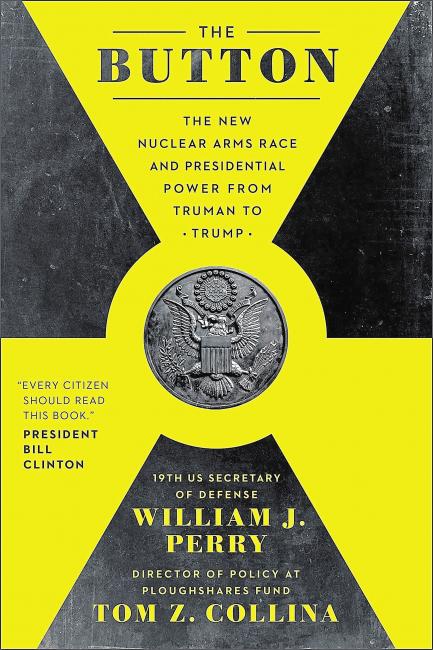The Button is terrifying – and very mainstream, reinforcing lots of US propaganda. However, it should be just the ticket for shaking the confidence of even the most deterrence-minded relative.
One of the authors, William Perry, was undersecretary of defence under US president Jimmy Carter.
Perry tells the story of how he was called at 3am on 3 June 1980 and told the US air defence system (NORAD) had detected 2,200 Soviet missiles on their way to the US.
He was then told it was a false alarm, but the US national security advisor, Zbigniew Brzezinski, had been just about to wake the president, at 2.30am, to tell Carter he had four minutes to decide the fate of the world.
(Brzezinski himself was convinced they should launch a massive retaliatory strike and had already ordered US nuclear bombers into the air – before the news came that it was a mistake.)
A few days later, there was an identical false alarm.
NORAD later discovered that one bad computer chip had caused both crises.
It cost 46 cents to replace, according to Perry.
‘Since then, I have never regarded false alarms as an academic problem,’ Perry writes.
The Button contains other frightening examples of nuclear near-misses, including aspects of the Cuban Missile Crisis that should be better-known.
Perry and his co-author Tom Collina of the Ploughshares Fund add that no nuclear war false alarm reached the US president during the Cold War – but, during the presidencies of George W Bush and Barack Obama, they did. (No details are available.)
Perry went on to take charge of US nuclear weapons, as defence secretary under president Bill Clinton.
The Button argues that: (a) authorisation to launch nuclear weapons should not be held just by the president: ‘no single person should have the power to end the world’; (b) the US should announce a ‘no first use’ policy in relation to nuclear weapons; and (c) it should ditch ‘launch on warning’.
Perry and Collina think the US should ‘establish a retaliation-only posture... only [launching nuclear weapons] in response to a verified attack’.
Two-thirds of people in the US support a ‘no first use’ declaration, according to polls.


